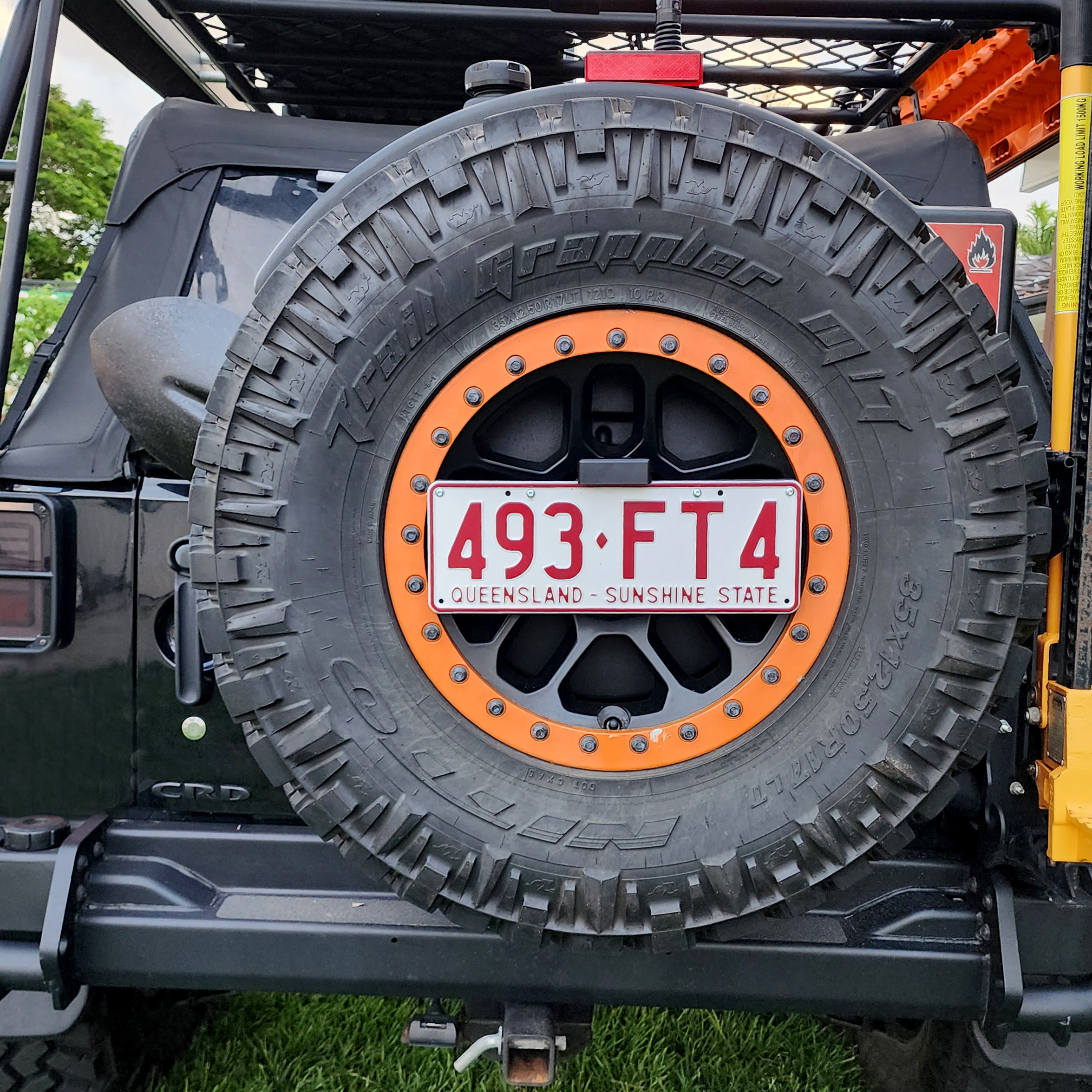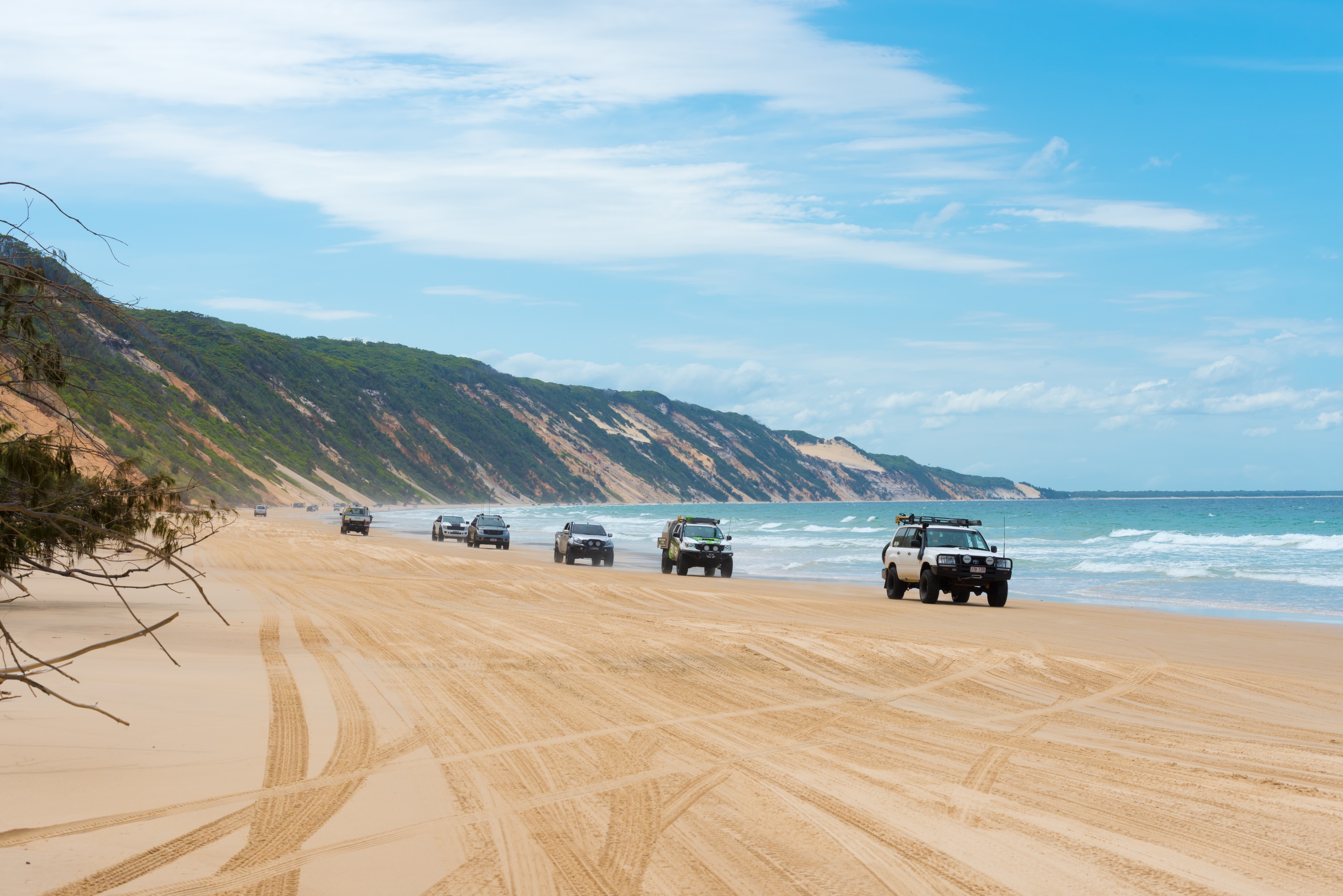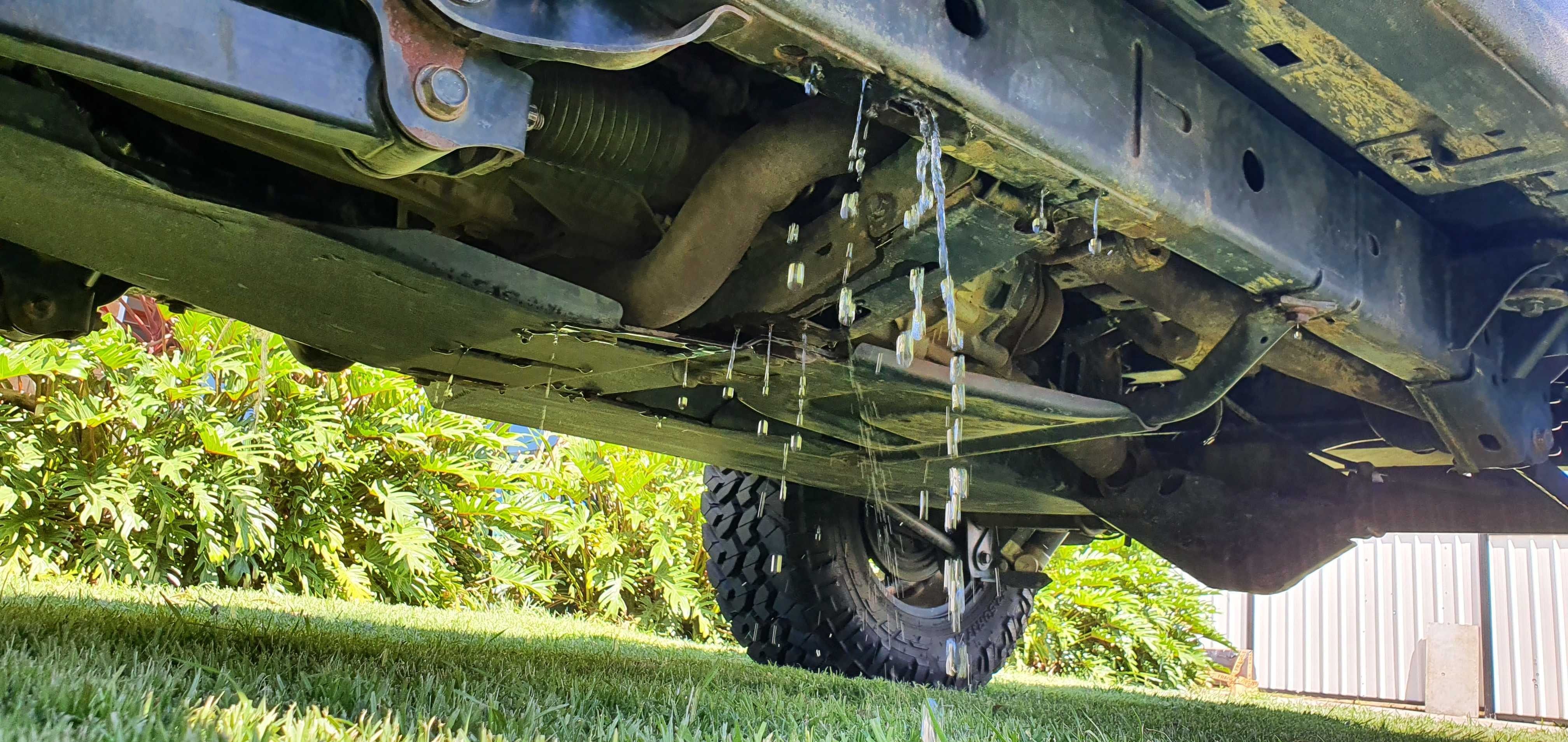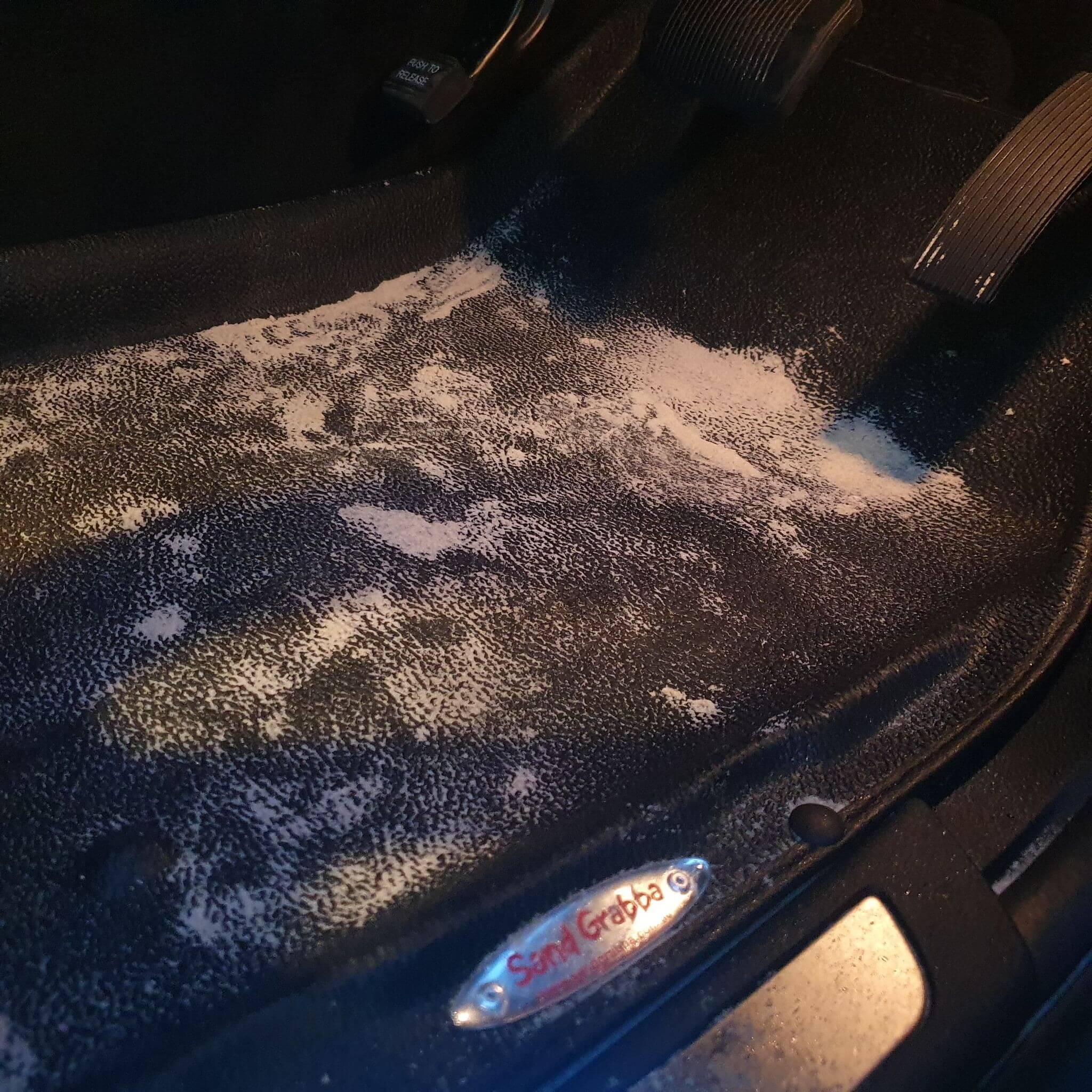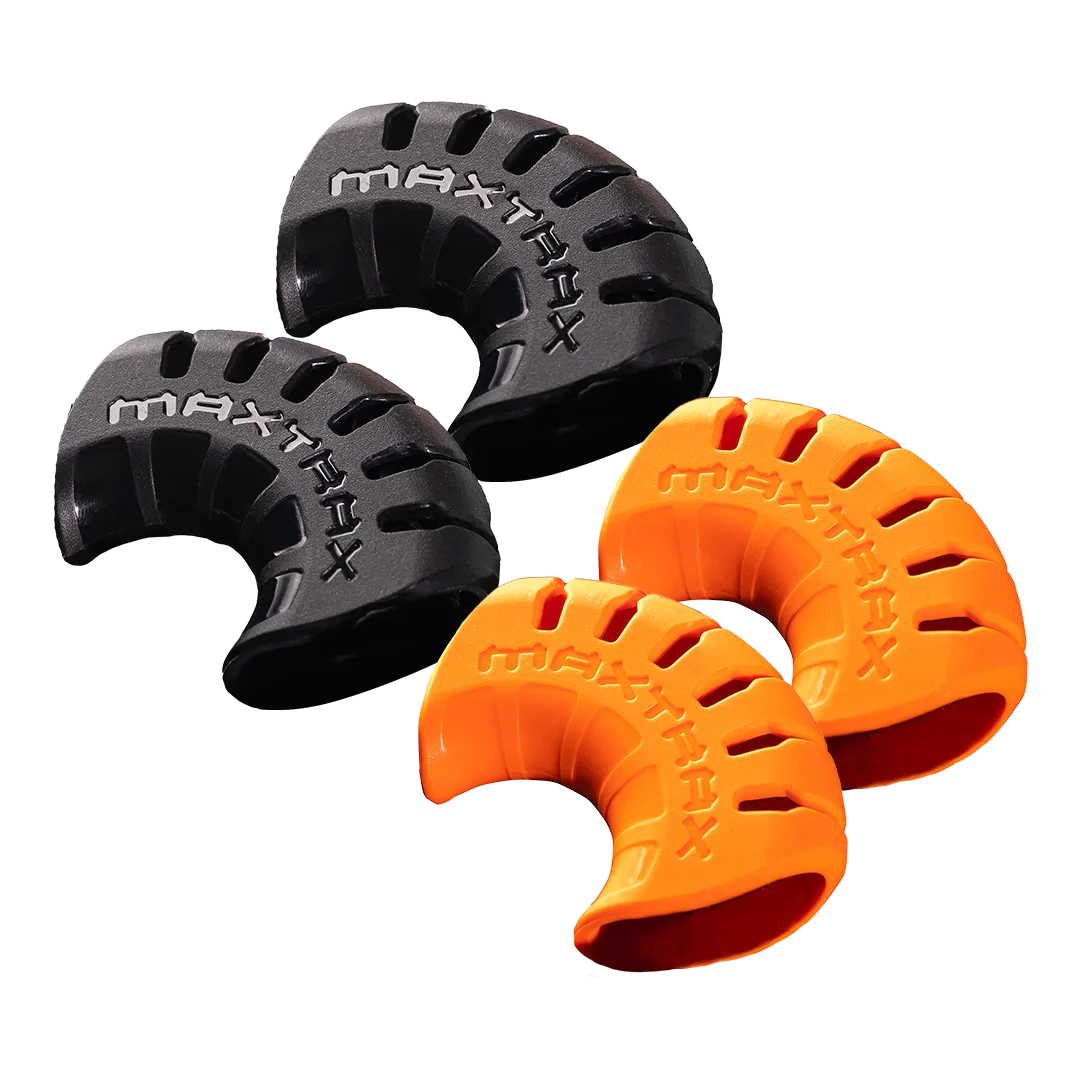Buying a Diesel vs Petrol for your next 4wd
One of the biggest decisions when buying your next 4wd will be... Petrol or Diesel? There's a lot of hype around 4wding that says a "proper" 4wd must have a diesel engine. Before you jump in and throw down your hard earned cash, there's some good arguements for having a petrol engine. Lets see some unbiased comparisons and discuss the pro's and con's in the age old Petrol VS Diesel debate...
Although many diehard 4wders and long time diesel owners will disagree, there are advantages and disadvantages to both fuel types. There's no definitive answer on which one is the best but at the end of the day, this article will help you make up your mind on what's right for you and your budget.

Purchasing A 4wd
The first thing you'll notice when comparing diesel 4wd's with petrol 4wd's is that the diesel will often cost you an extra $1,000-$3,000 premium on top of the regular petrol model price. This is before a turbocharged model is thrown into the arena! Both used and new markets see a radical price difference with the petrol engine always being slightly cheaper. This is due to additional manufacturing costs of diesel engines. The extra complexity of turbocharger systems also add to the purchase cost. Diesels often hold their value longer in a used car market and this is something to consider for the long term.
Power & Performance
It is common for people to think that the diesel model will be slower than the petrol vehicle. This is mostly true when the two vehicles are pitted against one another in a straight line. A turbo model vehicle will have a lot better performance but it is to be noted that the downside of turbo lag often makes a vehicle feel sluggish to drive around town.
Newer turbo engines are becoming more and more powerful and can often keep up with the performance of petrol vehicles and this is something to consider.
The biggest advantage comes when off road. In a diesel vehicle, you will have plenty of low rev torque. This means when you are crawling over rocks and obstacles it is very difficult to stall. A petrol vehicle will often require much higher revs to maintain momentum up hill and over obstacles.
For sand and beach driving, these differences often fade and both types of vehicles will have similar performance.
Engine Braking
The diesel engine has another distinct advantage off road. The design of a diesel engine means that it sucks in air unrestricted at all times. The amount of fuel injected into the engine is what determines how much power / rpm the engine makes. A petrol engine requires a constant fuel/air mix and the amount of air is regulated by a throttle butterfly plate in the intake.
When using engine compression to help downhill braking, the compression ratio of 20:1 for most diesels compared to 9:1 of most petrol engines, the diesel offers a far greater resistance to an increase in RPM. This resistance is caused by the large amounts of air being drawn in by the diesel engine while idling / crawling down a hill or descent.
The petrol engine will have it's intake butterfly closed and will not draw very much air during downhill engine braking. This is why a petrol engine will tend to run away when compared to a diesel.
Vehicle Maintenance
Diesel vehicles require far more frequent maintenance than a petrol engined vehicle. Typically diesels should have their oil changed every 5,000 km and an oil filter every 10,000 km. The maintenance and repair of a diesel engine can be costly when things like turbocharger seals start leaking or the diesel fuel pump requires replacing.
The cost of these regular services will eventually outweigh the less frequent petrol services.
When off road, the diesel engine has more parts that can potentially break or break down. A petrol engine requires less spare parts to be carried and can often be repaired enough to get to the nearest service center for a proper fix. That being said, if an alternator breaks down in a fuel injected petrol engine, you won't make it very far off the battery alone. A diesel will continue running without its alternator no problem.
Fuel Economy
The diesel is the outright winner in this category. With an average of 20-50% better economy, it will easily go further on one tank of gas. This range may help you in the outback of Australia where it could be a long drive between petrol stations!
Diesel is a safer fuel given its lower volatility. For example, petrol can be ignited almost 20m away from an uncapped tank because of its vapour trail. This can be problematic when refueling a vehicle next to a camp fire.
Exhaust Temperature
Once again due to the diesel's design, its exhaust temperature is around 200 degrees Celsius lower than a petrol engine. While in on-road driving this isn't much of a problem, off-road it has lead to major catastrophes. A typical problem in outback Aussie 4WDriving is the dry spinifex type grass that grows in the middle of tracks. This gets caught up in all areas, especially exhausts, and has been the cause of many fires. Many a 4WD has been lost this way. A diesel is not immune to this problem, but a petrol is at a far higher risk due to its hotter exhaust temperature.
Water Rating
4WDrives and water crossings tend to go hand in hand and its no surprise that a diesel shines again. Provided that water does not get into the air intake (or fuel tank), a diesel will operate underwater. When a petrol engine is subjected to this torture, it will invariably fail due to the electrics shorting out. Typically the sparkplug leads will short out, or the distributor will fail.
However, while a petrol tends to stall before any damage is done, a diesel will suffer major internal damage if water gets into the air intake. With its 20:1 compression ratio, only a very small amount of water will cause dramatic failure of a diesel engine. A petrol is not so prone to this as it does not draw in as much air (hence less water) and only has a 9:1 compression. Thus any water that is drawn in isn't subjected to as high a compression.
In practise, a diesel engine comes through most water crossings easily where a petrol engine often splutters its way through with intermittent shorting of the electrics. A well prepared petrol engine will minimise this, but not totally eliminate it.
Summary
There are many factors in the choice of diesel versus petrol with the most important being what you plan to do with your 4WD. A diesel engine is generally less powerful, more fuel efficient, has lower maintenance costs but with higher rebuild costs. As for its suitability for off-road driving, few would argue over the distinct advantages a diesel offers, but not all are convinced that it outweighs its poorer on-road performance. I guess it boils down to just how much off-road driving you plan to do.
|
|
Diesel | Petrol |
| Purchase Price | Typically $1,000 - $3,000 extra, and up to $10,000 extra for a large capacity turbo. | |
| Power | Only a turbo diesel engine comes close to a similar size petrol. Normally has a significantly lower redline. | Typically 25% more for a similar size engine. |
| Torque | Better at low revs and generally a "straight" torque curve. Can be peaky in small capacity turbo engines. | Although most 4WD engines are designed for good low down torque, a diesel is still superior |
| Engine braking | Very good in manual, OK in auto. | OK in manual, poor in auto. |
| Maintenance | Requires more frequent oil changes, but otherwise significantly longer periods between major maintenance. | Generally longer intervals between services (10,000 kms vs 5,000kms), but often more costly when they are due. |
| Engine life (between overhauls) | 350,000 to 500,000 kms between rebuilds (varies significantly with maintenance and use) |
200,000 to 350,00 kms between rebuilds (varies significantly with maintenance and use) |
| Fuel Economy | Generally 20% to 50% better | |
| Fuel volatility | Volatile, but significantly less than petrol. | Highly volatile, vapour will ignite up to 20m from a flame source |
| Exhaust Temperature | approximately 600 degrees Celsius | approximately 800 degrees Celsius |
| Engine weight | Typically 10 to 20% heavier for a similar capacity engine | |
| Water rating | Excellent, provided water does not get into the air intake. | Ignition prone to shorting when wet. |

